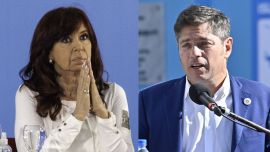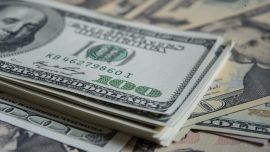PASO: GAME-CHANGER AND GAME OVER?
Last Sunday’s PASO nationwide primaries were anything but the close race forecast by the opinion pollsters, leaving the neo-Peronist Frente de Todos presidential candidate Alberto Fernández within a whisker of the presidency after registering a huge 15-point lead over the current incumbent Mauricio Macri. In Buenos Aires Province, by far the country’s biggest electoral district, the Frente de Todos gubernatorial candidate Axel Kicillof (economy minister from 2013 to 2015 and a complete newcomer to provincial politics) built up an even more formidable margin of 18 points over Governor María Eugenia Vidal, identified by pollsters as the country’s most popular politician throughout the last four years and a star figure within Macri’s Juntos por el Cambio coalition. But in Buenos Aires City the advantage was almost as big (14 percent) for sitting Mayor Horacio Rodríguez Larreta even if he likely faces a potentially risky run-off against political novice Matías Lammens, president of San Lorenzo football club and a surprise nominee by Frente de Todos. Apart from the national capital, Córdoba was the only one of Argentina’s 24 electoral districts to go the government’s way even if both were won with the comfortable margins characteristic of Sunday’s main results. Election night itself was atypical in at least two ways – instead of any suspense stretching into the small hours of Monday, the issue was settled within two minutes at 10.30pm when Interior Minister Rogelio Frigerio tersely announced that with 58 percent of the votes counted Fernández had 47 of the vote and Macri 32 percent (percentages which hardly changed with the rest of the vote) but this announcement followed an agonising delay of 90 minutes from the 9pm previously promised.
CARRIÓ MAKES SPURIOUS CLAIMS
One leader of the ruling Juntos por el Cambio alliance who did not share the generally downcast mood in government ranks following their catastrophic PASO results last Sunday was the Civic Coalition’s Elisa Carrió. Her first reaction to the shock defeat was to blame it on vote-tampering by the hacker hirelings of drug-trafficking gangs. On Thursday she forecast that Macri would win the October 27 election by a landslide but if not, his administration would need to be carried out of government buildings “feet first.”
LAVAGNA STAYS ON BRAND
Federal Consensus 2030 presidential candidate Roberto Lavagna “temporarily” suspended his election campaign, arguing that the ongoing financial crisis called for dialogue and “consensus” instead of confrontation and urging all other candidates to follow his example. Lavagna also insisted on renegotiating the conditions of the government’s stand-by loan with the International Monetary Fund (IMF), further calling for a national food emergency to be declared.
CRISTINA OFF TO CUBA (AGAIN)
On Thursday the judges trying the multiple graft cases against Senator Cristina Fernández de Kirchner unanimously agreed to allow the ex-president to travel to Cuba next Thursday, remaining there until August 30, in order to visit her daughter undergoing medical treatment on the Caribbean island, her fourth such visit. Fernández de Kirchner already began the week on a roll as the running-mate of Frente de Todos presidential candidate Alberto Fernández, who won last Sunday’s PASO primaries by a landslide.
MARKET MELTDOWN
The Mauricio Macri administration’s shock defeat in the PASO primaries was instantly followed by Black Monday which sent the dollar soaring from a pre-PASO 46.55 pesos to over 65 pesos in some banks while the Merval share index collapsed 38 percent (the second-steepest plunge worldwide of the last seven decades). The chaos continued through to midweek when Macri and PASO’s runaway Peronist victor Alberto Fernández broke some of the ice with telephone contacts. The week closed yesterday with the dollar at 57 pesos and country risk at 1,656 points from midweek peaks close to 2,000 points. (See Page 5 for a full dayby-day story.)
EVERY LITTLE HELPS
Following a Monday in a state of shock over their shattering PASO defeat, the government were already preparing a package of economic measures to reverse the electoral verdict on Tuesday and they were duly announced the next day by President Mauricio Macri himself. This package, which also aims at countering Monday’s devastating devalution, potentially benefits 17 million people. The measures include: a) raising the income tax floor by 20 percent (providing relief estimated at a monthly 2,000 pesos on average for some two million people); b) freezing petrol prices for the next three months (which has yet to materialise since the following day the oil companies refused to produce this highly dollarized commodity below cost); c) two monthly AUH child benefit bonuses of 1,000 pesos each for next month and October; d) a minimum wage increase (the exact percentage is to be agreed with trade unionists and businessmen at Minimum Wage Council meetings within the next few days), which will not only benefit some two million workers at that income level but also affect differentials across the pay spectrum; e) a 5,000-peso bonus this month for all state employees and members of the security forces; f) a 40 percent increase for Progresar higher education scholarships; and g) a 10-year tax moratorium for PyME small and medium-sized companies. A pension booster was also contemplated but ended up not being included in Wednesday’s presidential announcement. But on Thursday more economic measure followed – Interior Minister Rogelio Frigerio announced a UVA mortgage freeze for the rest of this year and IVA value-added tax was scrapped for 14 basic food products.
PRICEWATCH
Last month’s inflation was announced as 2.2 percent by INDEC statistics bureau on Thursday, thus accumulating 25.1 percent for 2019 so far and 54.4 percent for the last 12 months. The good news is that this was this year’s lowest figure until now – the bad that the impact of this week’s devaluation has yet to be factored in with over 10 percent projected between this month and next. Healthcare was the leading culprit for July inflation at 4.1 percent.























Comments